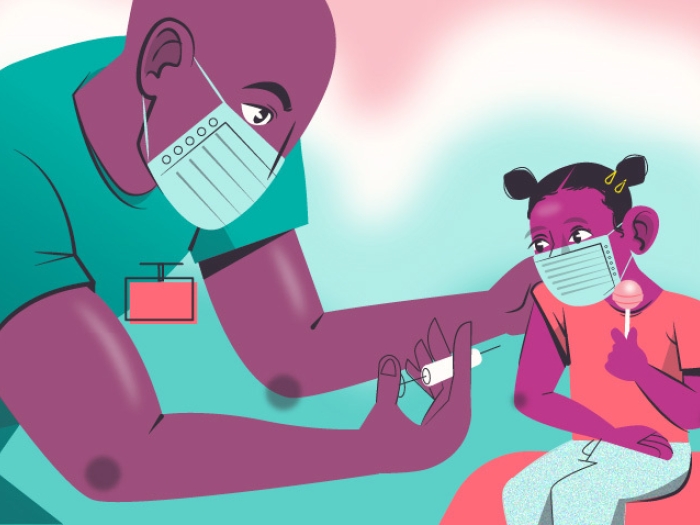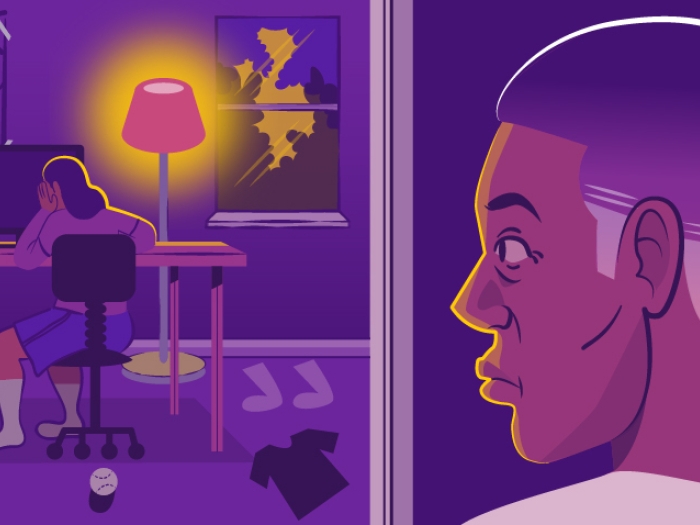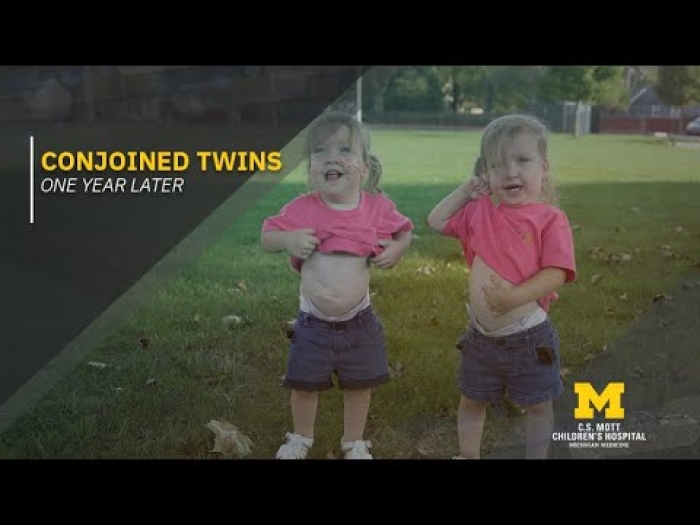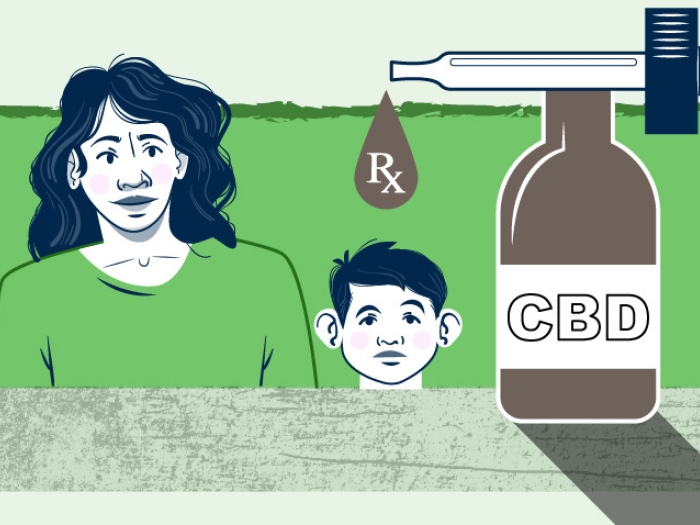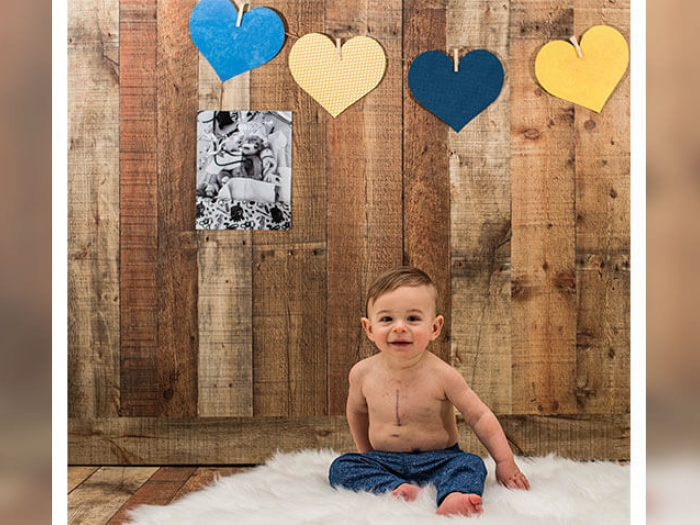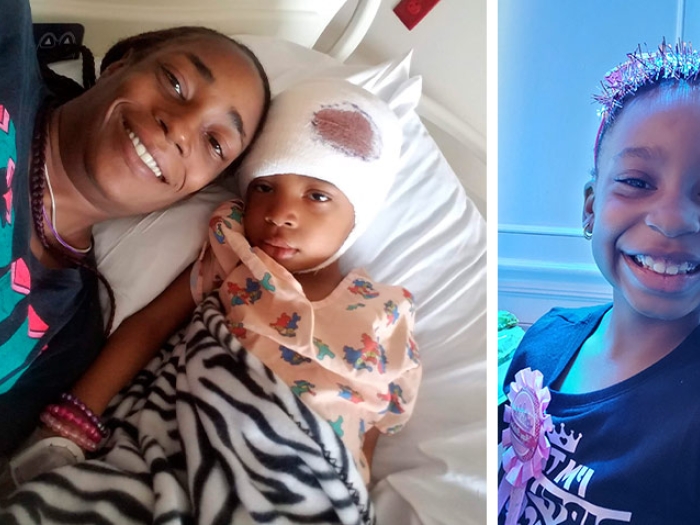After experiencing heart failure, toddler was airlifted by Michigan Medicine’s Survival Flight team from northern Michigan to Ann Arbor for emergency surgery. His mother recounts the emotional journey.
8:39 AM
Author |
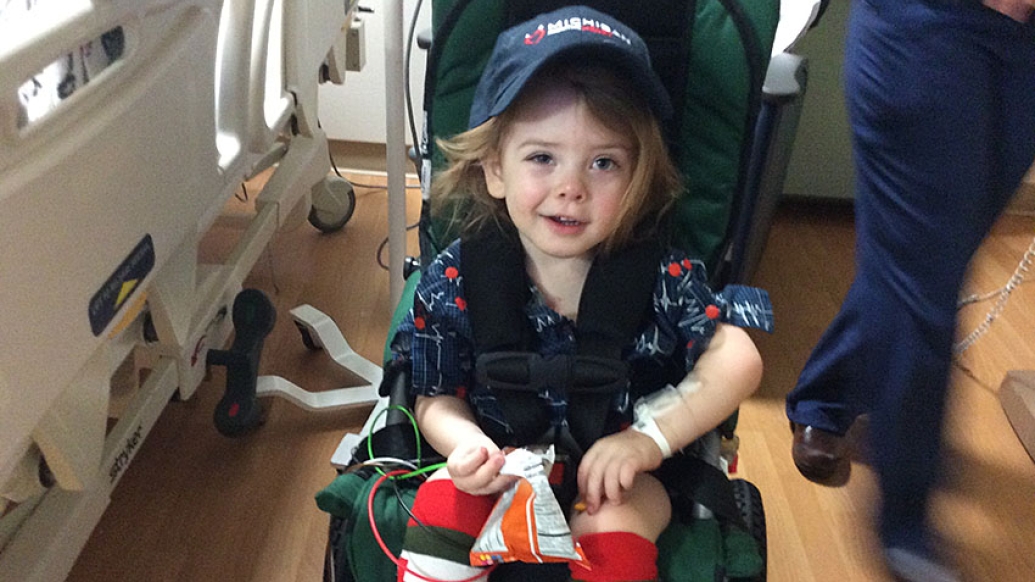
When Ruger Weathermon, two years-old, was born, he was diagnosed with an atrioventricular septal defect (AVSD), a rare heart condition affecting around 2,000 babies a year according to the Centers for Disease Control and Prevention. The condition causes babies to develop signs of congestive heart failure and includes symptoms such as rapid breathing, feeding problems, slow weight gain, low energy and cold and clammy sweats.
SEE ALSO: Antrioventricular Septal Defect or AV Canal (AVSD)
Due to the defect, Ruger, of Rogers City, Michigan, had four open-heart surgeries in 2019 alone. One of the surgeries occurred on March 7, when Ruger was rushed to C.S. Mott Children's Hospital after being treated by doctors and emergency medical technicians in northern Michigan.
LISTEN UP: Add the new Michigan Medicine News Break to your Alexa-enabled device, or subscribe to our daily updates on iTunes, Google Play and Stitcher.
Sammantha Weathermon, Ruger's mother, vividly recalls the morning when her son's health took a turn for the worst.
"We saw my other children off to school on the bus, and Ruger was smiling and doing just fine," says Sammantha.
"Then, Ruger kept saying 'har, mom, har, har', like he was trying to say 'heart'. His coloring was off, and he just went down."
Sammantha called 911, but when the person on the other line said that the ambulance would be at the house in 11 minutes, she knew Ruger did not have that long to wait.
"I took Ruger and jumped in the car, driving as I stayed on the line and screamed out road signs to the people on the phone," she says. "The ambulance eventually met us as I pulled onto the side of the road and ran with Ruger in my arms to them. He was lifeless and cold."
While in the care of the Rogers City Area Ambulance Authority team, Ruger was given an EZ-IO intraosseous infusion, which involves placing a large needle into the bone of the lower leg, just below the knee, to deliver drugs into the body as quickly as possible.
"I just remember them telling me to hold onto Ruger's legs harder than anything I'd ever held before," says Sammantha. "While they were drilling, Ruger didn't move, and that's when I knew my son was gone."
The team was able to transport Ruger to the Alpena Regional Medical Center, where the team of doctors kept him stabilized. The Survival Flight transport team then took him by helicopter to Mott for emergency surgery led by pediatric heart surgeon Richard Ohye, M.D. Ruger received a permanent pacemaker to help with his condition.
MORE FROM MICHIGAN: Sign up for our weekly newsletter
"I received updates from Mott my entire drive to Ann Arbor," says Sammantha. "I knew there was nothing I could do, but I knew I was handing my son into capable hands and prayed they would save him."
Ruger's family praised the collaboration and relationship between the northern Michigan and Michigan Medicine teams that led to his life-saving treatment and care.
"It was the entire team that saved my son's life," says Sammantha. "The EMT team in Rogers, the air crew, Dr. Ohye and everyone along the way. I couldn't be more grateful for everything they did for my son and my family."
Ohye says Ruger's recovery is a testament to the importance of collaboration among medical teams.
"The key to Ruger having survived this very scary, near-death experience is great teamwork," says Ohye. "It has been an honor to work with Ruger and his family. His parents have handled this very difficult situation with grace, patience and even humor."
Ruger has been seeing Ohye for his care since birth.
"Every single time Ruger is spiraling, Dr. Ohye brings him back to me," says Sammantha. "That's how I know we're in the right spot. Why would we go anywhere else?"
Continuing about her experience with the Michigan Medicine team, Sammantha mentioned the outstanding community feeling her family gets while visiting Ann Arbor.
"These people at Mott are my family," says Sammantha. "We're going to be lifetime patients because I know he (Ruger) is not done; he was brought here for a reason."

Explore a variety of healthcare news & stories by visiting the Health Lab home page for more articles.

Department of Communication at Michigan Medicine
Want top health & research news weekly? Sign up for Health Lab’s newsletters today!
